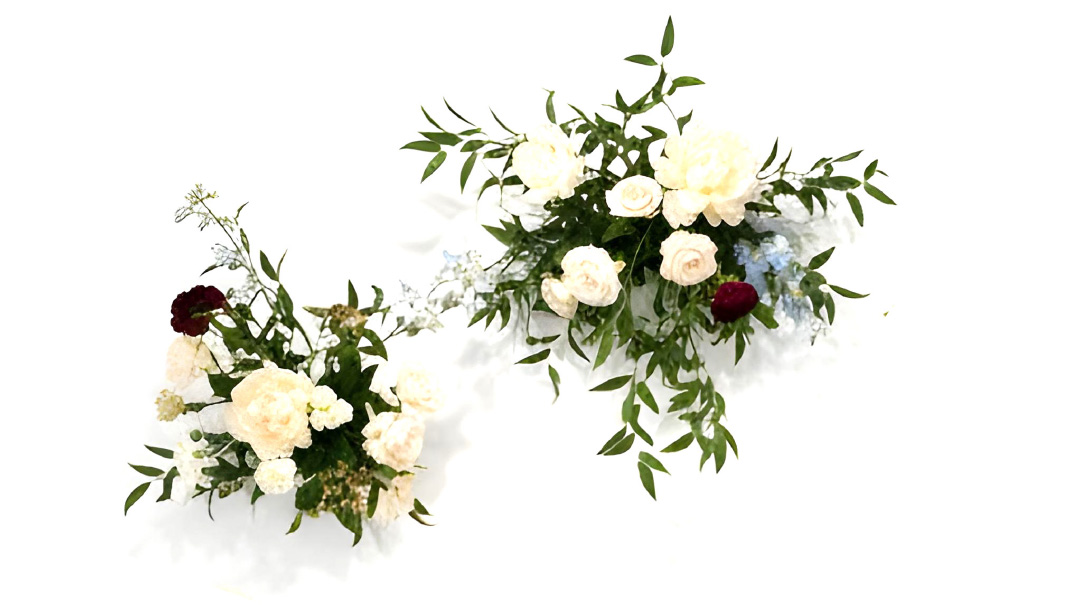Forgotten Phrases

That was where I learned to correctly pronounce so many of the then unfamiliar words that are now my buddies

W
hen I was a young teen in Cleveland, Yavne High School was housed in the large and imposing Taylor Road Synagogue building. Our day would begin on time with (mandatory) prayer at nine a.m. in the small chapel — a narrow, pretty wood- paneled room that accommodated about 50 and housed all of us with seats left over. Because most of us walked to school, we all arrived at various points of on time.
That rather modest mini-sanctuary was on the left as you entered the building through the impressive heavy wooden main doors — which no one did because we all came in through either the side or back doors.
A maroon, velvet gold-fringed and tasseled curtain, with embroidered donor names prominently displayed, covered the arched ark in the front of the room. They matched the theater-style seating with the maroon-cushioned hinged seats that would automatically close as soon as you stood up.
The wall of windows on the right overlooked the beautiful foliage of Cain Park, right next door.
Rebbetzin Rochel Sorotzkin, our principal, sat discreetly near the mid-room entrance on an outside aisle. Just above the inside of the doorway hung a rather large wall clock that made arriving on time a bit more compelling.
I’d like to tell you that I remember someone leading the shortened morning prayers. I don’t. But I do recall that we all said them together — enunciating out loud — except for when we didn’t.
That was where I learned to correctly pronounce so many of the then unfamiliar words that are now my buddies.
Life continues after high school, though we never thought it would or could. Graduations, hairdos, hearts, flowers, satin, tulle, thank-you notes, babies, blankets, bows, and dreams (real or not). My siddur and Tehillim wound their way up and into the bookcases in our library, often wandering from here to there for decades at a time.
Communal crises, global world events, and plumbing mishaps (treated as one and the same) would make me dig them out, and I’d honestly feel relieved when I could put them back again.
You know those family fables you hear about the mother standing in the corner clutching her crying infant, davening intensely while her toddler yanks at her skirt and her older little ones watch in awe? That wasn’t me.
I waited for “state occasions.” If I had a babysitter for Rosh Hashanah or Yom Kippur, I would go to shul. If not, Yizkor was said racing in, clutched machzor in hand, and quickly racing back.
Sometimes we friends would take turns — you go for this, and I’ll go for that — and we’d hope (and yes, pray) the kids wouldn’t skin too many knees, split too many chins or tear a hole in their new pair of Shabbos pants — an intense prayer experience if ever there was one. More often than not, those prayers went unanswered — or rather, that answer was no.
Otherwise, I was home, setting tables, cutting up salads, preparing food while playing or refereeing kids in the park. I didn’t feel guilty. These were days (centuries!) when I felt grateful that I remembered my name, let alone what I was supposed to say when.
Holidays became more associated with menus (what went into our mouths), rather than words of worship (what came out of our mouths). There was a lot of sacred concentration on what I was supposed to be buying, wearing, cooking, freezing, and serving.
It’s not like I wasn’t talking to Him. I was. Just in curt prayer-language statements and questions that sounded something like this: Dear G-d, help me get through this day; Ribbono shel Olam, how am I going to make it? and Heavens! What should I do first?
Commitments to family and community were the sum of the religion I’d practice, and devotion to the values of keeping my head above water became the focus of yet another day.
As time moved on, I found myself having longer conversations with Him. I still could not bring myself to conform to what I perceived as rote. I often had no time. Sometimes I had too much time, and still I could not get the words out. Instead, I’d share my thoughts. I’d talk in my own words or tears, often both. I began developing a deeper and more profound relationship than I had ever thought possible. My prayers consisted more of statements than questions and requests.
I don’t pretend to understand His actions or His ways, but that certainly doesn’t stop me from giving Him my expert opinion. I don’t often agree with the responses, and I don’t always like the outcomes. I am learning to simply trust. It’s what developing a relationship of reverence and love is all about. I’m just a slow learner.
That realization comes with different conversations; conversations that require thanks, the practiced words from the mists of my yesterdays. These words of thanks should be said with more grace than I can mumble on my own, and those sacred expressions have already been composed by others far above my pay grade. I know they’re somewhere in my dusty past, peeking from behind the wood-paneled, maroon-dressed room in my almost forgotten memories.
I search for them, and lo and behold, I find those words patiently waiting for me where I had left them last: in my once-lonely siddur and her best friend, my trusty Tehillim, back in my hands once again.
Right where they belong.
(Originally featured in Family First, Issue 895)
Oops! We could not locate your form.







